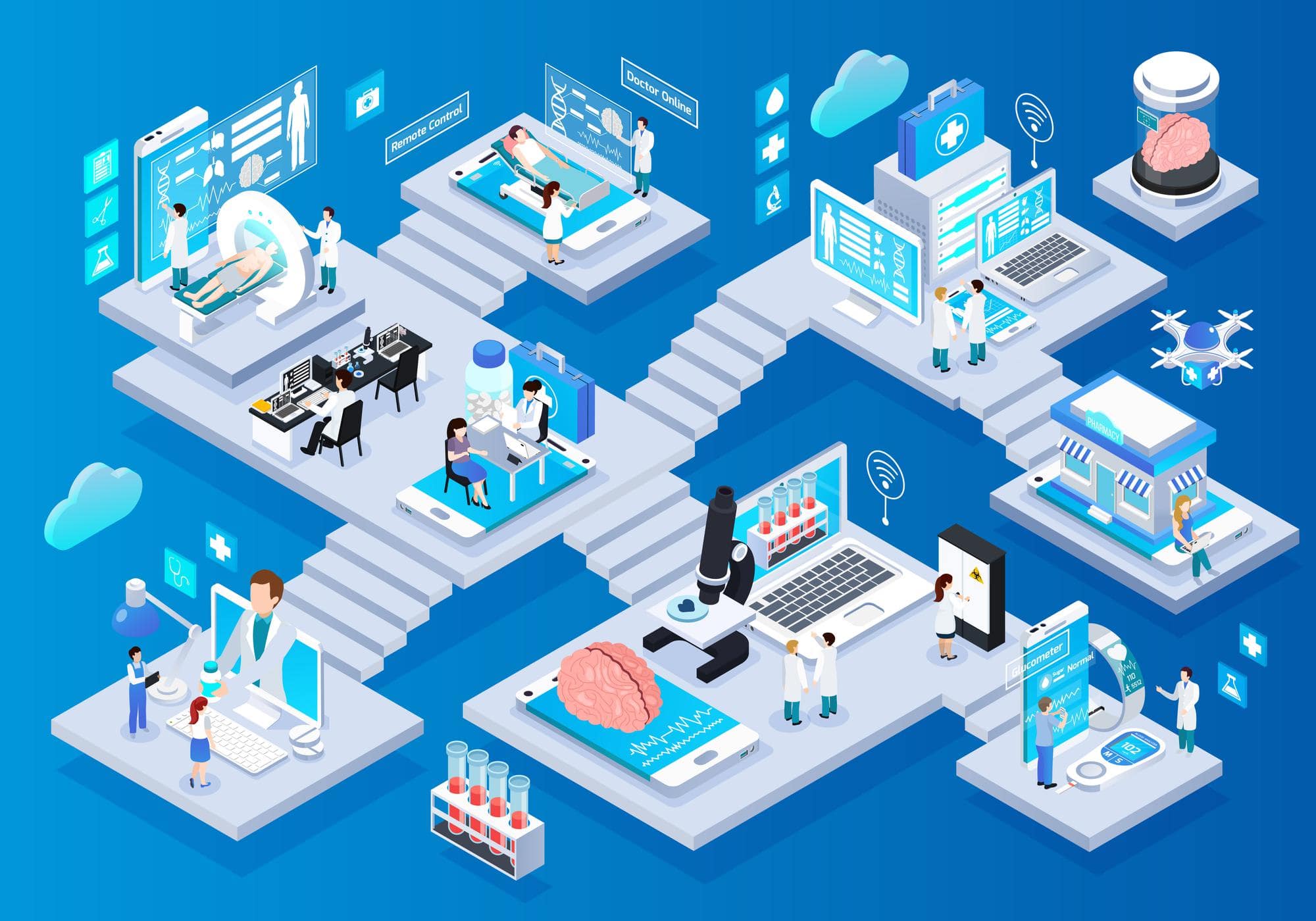Cloud computing in healthcare is poised to reshape the landscape of healthcare beyond patient care and administration. In this article, we delve into the transformative potential of cloud computing in driving medical research, innovation, and scientific breakthroughs. By leveraging the power of cloud technology in healthcare, the healthcare industry is experiencing a paradigm shift that accelerates research, enhances collaboration, and propels medical advancements to new heights.
Empowering Medical Research
Vast Data Storage and Analysis: Cloud platforms provide medical researchers using cloud computing in healthcare with the ability to store and analyze massive datasets, such as genomic information, medical images, and clinical trial data. This enables faster and more comprehensive analysis, leading to insights that were previously unattainable.
Genomic Research and Precision Medicine: Cloud computing enables efficient storage and analysis of genomic data in healthcare, allowing researchers to identify genetic markers, study disease predispositions, and develop personalized treatment plans. This paves the way for precision medicine in healthcare, where treatments are tailored to individual patients based on their genetic makeup.
Drug Discovery and Development: Cloud-based simulations and computational models expedite the drug discovery process in healthcare. Researchers can analyze complex interactions, predict potential side effects, and optimize molecules, ultimately accelerating the development of new medications.
Fostering Collaboration and Innovation
Global Collaboration Platforms: Cloud technology facilitates real-time collaboration among researchers in healthcare, regardless of their geographical locations. Scientists can work together on complex projects, share findings, and exchange expertise, leading to quicker scientific advancements.
Resource Sharing and Access: Cloud-based platforms allow researchers in healthcare to access shared resources, tools, and datasets, eliminating redundancy and promoting efficient utilization of research assets. This democratizes access to cutting-edge resources, benefiting both established researchers and newcomers.
Data-Driven Insights: Cloud-enabled data analytics offer researchers in healthcare the capability to identify patterns, correlations, and trends within complex datasets. These insights drive evidence-based decision-making and guide research directions.
Challenges and Considerations
Data Security and Privacy: The sensitive nature of medical data in healthcare requires robust security measures to prevent unauthorized access and breaches. Cloud providers in healthcare must adhere to stringent security standards, such as HIPAA compliance, to ensure data protection.
Interoperability and Data Standards: Integrating diverse datasets from various sources in healthcare can be challenging due to differences in data formats and standards. Ensuring seamless interoperability is crucial to realizing the full potential of cloud-based research.
Ethical Considerations: As cloud computing becomes integral to medical research in healthcare, ethical concerns related to data ownership, consent, and transparency must be carefully addressed to maintain public trust.
Conclusion
The integration of cloud computing in healthcare into medical research is ushering in a new era of scientific discovery and innovation in healthcare. By harnessing the computational power, storage capabilities, and collaborative potential of the cloud in healthcare, researchers are accelerating the pace of medical advancements. While challenges remain, the benefits of cloud-enabled research in healthcare are undeniable – from decoding the human genome to expediting drug development. As the healthcare industry embraces cloud computing, it is shaping a future where collaboration, data-driven insights, and technology converge to revolutionize medical research and transform the landscape of healthcare as we know it.





